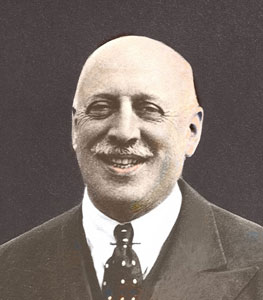From Wikipedia, the free encyclopedia/Blogger Ref http://www.p2pfoundation.net/Transfinancial_Economics
In political and social theory, accelerationism is the idea that either the prevailing system of capitalism, or certain technosocial processes that have historically characterised it, should be expanded, repurposed or accelerated in order to generate radical social change. Some contemporary accelerationist philosophy takes as its starting point the Deleuzo-Guattarian theory of deterritorialisation, aiming to identify, deepen, and radicalise the forces of deterritorialisation with a view to overcoming the countervailing tendencies that suppress the possibility of far-reaching social transformation.[1][clarification needed] Accelerationism may also refer more broadly, and usually pejoratively, to support for the deepening of capitalism in the belief that this will hasten its self-destructive tendencies and ultimately eventuate its collapse.[2][3]
Professedly accelerationist theory has been divided into mutually contradictory left-wing and right-wing variants, with "left-accelerationism" attempting to press "the process of technological evolution" beyond the constrictive horizon of capitalism, for example by repurposing modern technology to socially beneficial and emancipatory ends, and "right-accelerationism" supporting the indefinite intensification of capitalism itself, possibly in order to bring about a technological singularity.[4][5][6]
Along accelerationist lines, Paul Mason tried to speculate about futures after capitalism. He declares that "[a]s with the end of feudalism 500 years ago, capitalism’s replacement by postcapitalism will be accelerated by external shocks and shaped by the emergence of a new kind of human being. And it has started." He considers that the rise of collaborative production will eventually help capitalism to kill itself.
Professedly accelerationist theory has been divided into mutually contradictory left-wing and right-wing variants, with "left-accelerationism" attempting to press "the process of technological evolution" beyond the constrictive horizon of capitalism, for example by repurposing modern technology to socially beneficial and emancipatory ends, and "right-accelerationism" supporting the indefinite intensification of capitalism itself, possibly in order to bring about a technological singularity.[4][5][6]
Contents
[hide]Background[edit]
A number of philosophers have expressed apparently accelerationist attitudes, including Karl Marx in his 1848 speech "On the Question of Free Trade":- But, in general, the protective system of our day is conservative, while the free trade system is destructive. It breaks up old nationalities and pushes the antagonism of the proletariat and the bourgeoisie to the extreme point. In a word, the free trade system hastens the social revolution. It is in this revolutionary sense alone, gentlemen, that I vote in favor of free trade.[7]
Contemporary accelerationism[edit]
Prominent theorists include right-accelerationist Nick Land. The Cybernetic Culture Research Unit (Ccru), an unofficial research unit at the University of Warwick from 1995–2003,[10] of which Land was a member, is considered a key progenitor in both left- and right-accelerationist thought.[11] Prominent contemporary left-accelerationists include Nick Srnicek and Alex Williams, authors of the "Manifesto for an Accelerationist Politics",[12] and the Laboria Cuboniks collective, who authored the manifesto "Xenofeminism: A Politics for Alienation".[13]Along accelerationist lines, Paul Mason tried to speculate about futures after capitalism. He declares that "[a]s with the end of feudalism 500 years ago, capitalism’s replacement by postcapitalism will be accelerated by external shocks and shaped by the emergence of a new kind of human being. And it has started." He considers that the rise of collaborative production will eventually help capitalism to kill itself.
References[edit]
- Jump up ^ Wolfendale, Peter (2014). "So, Accelerationism, what’s all that about?". Dialectical Insurgency. Retrieved 5 February 2015.
- Jump up ^ Shaviro, Steven (2010). Post Cinematic Affect. Ropley: O Books. p. 136.
- Jump up ^ Adams, Jason (2013). Occupy Time: Technoculture, Immediacy, and Resistance After Occupy Wall Street. New York: Palgrave Macmillan. p. 96.
- Jump up ^ Jiménez de Cisneros, Roc (5 November 2014). "The Accelerationist Vertigo (II): Interview with Robin Mackay". Centre de Cultura Contemporània de Barcelona. Retrieved 5 February 2015.
- Jump up ^ Williams, Alex; Srnicek, Nick (14 May 2013). "#ACCELERATE MANIFESTO for an Accelerationist Politics". Critical Legal Thinking. Retrieved 5 February 2015.
- Jump up ^ Land, Nick (13 February 2014). "#Accelerate". Urban Future (2.1). Retrieved 5 February 2015.
- Jump up ^ Marx, Karl, On the question of free trade, Speech to the Democratic Association of Brussels, 9 January 1848.
- Jump up ^ Quoted in Strong, Tracy (1988). Friedrich Nietzsche and the Politics of Transfiguration. Berkeley: University of California Press. p. 211. Original in The Will to Power §898.
- Jump up ^ Deleuze, Gilles; Guattari, Félix (2004). Anti-Oedipus. London: Continuum. p. 260.
- Jump up ^ "CCRU". V2_Institute for the Unstable Media. Retrieved 2015-10-09.
- Jump up ^ Schwarz, Jonas Andersson (2013). Online File Sharing: Innovations in Media Consumption. New York: Routledge. pp. 20–21.
- Jump up ^ "#ACCELERATE MANIFESTO for an Accelerationist Politics". Critical Legal Thinking. Retrieved 2015-10-09.
- Jump up ^ "After Accelerationism: The Xenofeminist manifesto". &&& Journal. Retrieved 2015-10-09.
Further reading[edit]
Books[edit]
- Land, Nick (2011). Brassier, Ray; Mackay, Robin, eds. Fanged Noumena. Urbanomic. ISBN 9780955308789.
- Mackay, Robin, ed. (2014). #ACCELERATE: The Accelerationist Reader. Urbanomic. ISBN 9780957529557.
- Noys, Benjamin (2013). Malign Velocities: Accelerationism and Capitalism. Zero Books. ISBN 9781782793007.
Articles[edit]
- Brassier, Ray (13 February 2014). "Wandering Abstraction". Mute.
- Brennan, Eugene (12 August 2013). ""Debate is Idiot Distraction": Accelerationism and the Politics of the Internet". 3:AM Magazine.
- Land, Nick. "Meltdown" at the Wayback Machine (archived April 8, 2012).
- Mackay, Robin (2014). "So, Accelerationism, what’s all that about?". Dialectical Insurgency.
- Moreno, Gean (2012). "Notes on the Inorganic, Part I: Accelerations". e-flux.
- Negri, Antonio (2014). Translated by Matteo Pasquinelli. "Reflections on the "Manifesto for an Accelerationist Politics"". e-flux.
- Pasquinelli, Matteo (9 June 2014). "The Labour of Abstraction: Theses on Marxism and Accelerationism".
- Power, Nina (2015). "Decapitalism, Left Scarcity, and the State". Fillip.
- Wark, McKenzie (2013). "#Celerity: A Critique of the Manifesto for an Accelerationist Politics" (PDF).
- Williams, Alex; Srnicek, Nick (14 May 2013). "#ACCELERATE MANIFESTO for an Accelerationist Politics". Critical Legal Thinking.



